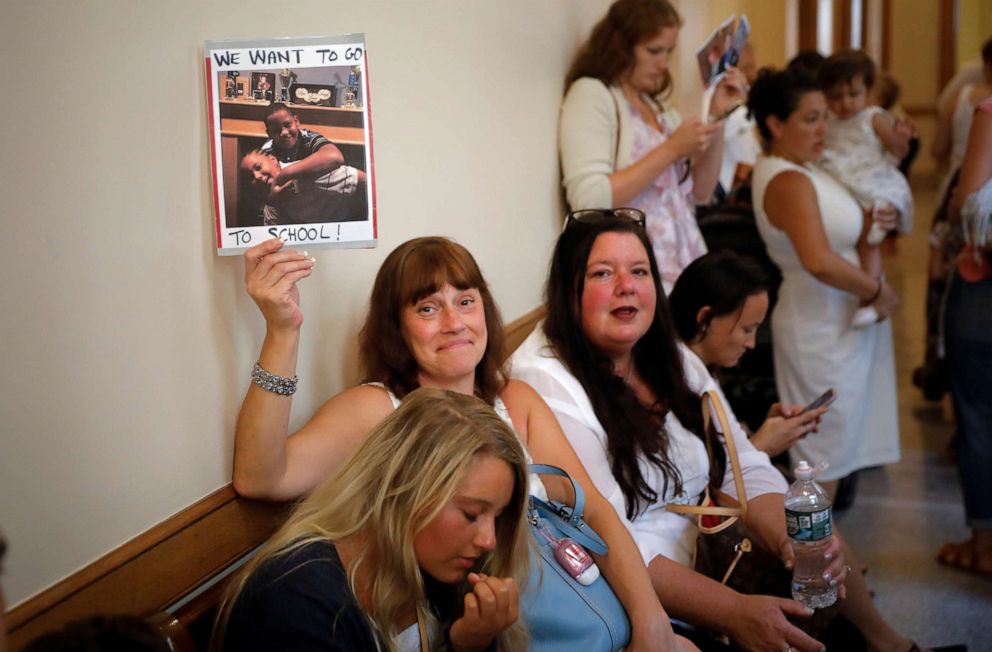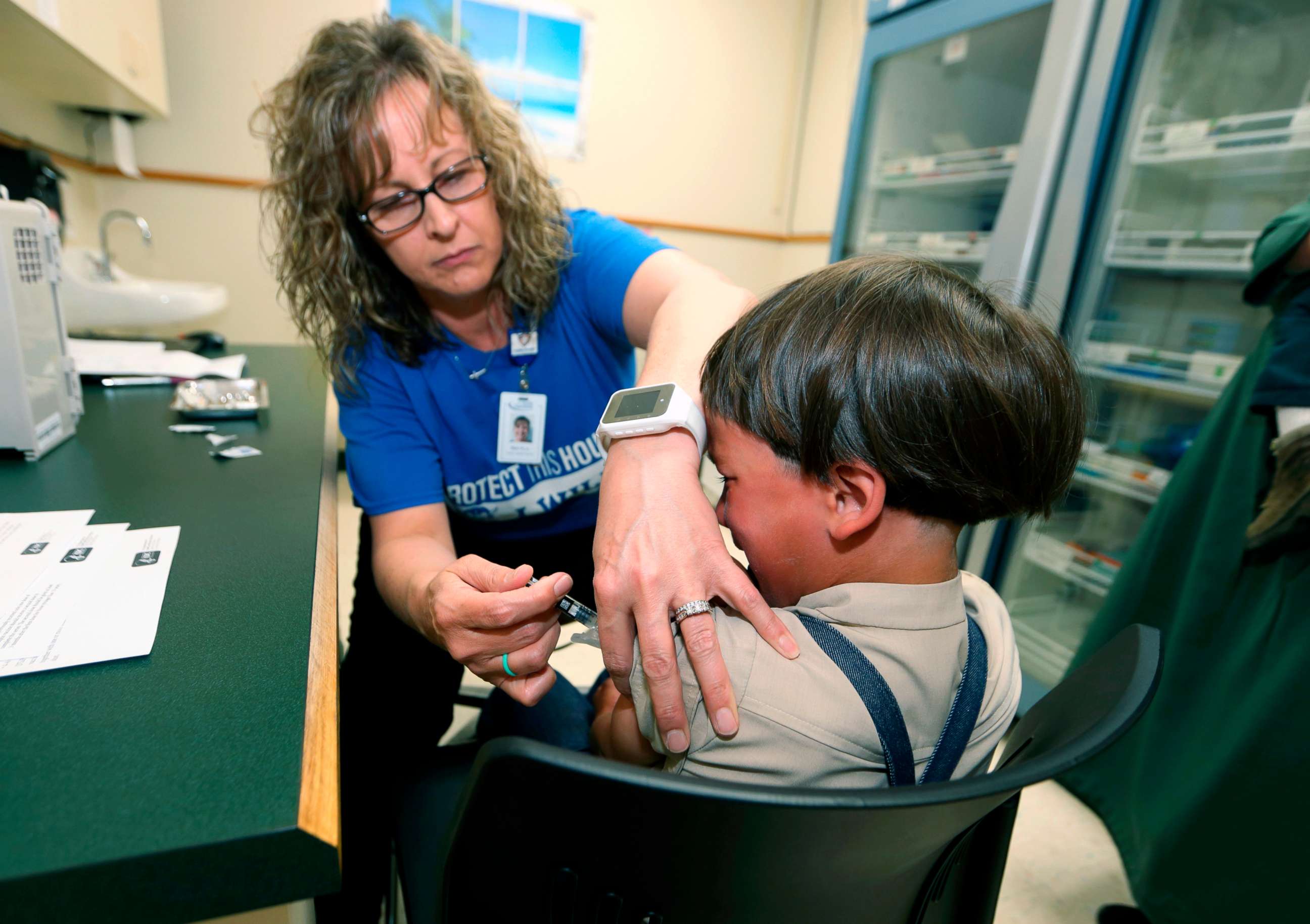Parents urged to vaccinate their kids against measles ahead of the new school year
In some states, parents still have the option of citing religious exemptions.
As kids return to school, health officials are urging parents to vaccinate their kids before they step through the schoolhouse doors.
U.S. health officials have identified six active measles outbreaks and a record number of cases since the disease's eradication in the country in 2000.
"In the communities where the outbreaks happened in the U.S., in every single one of those outbreaks, those were a result of parents choosing not to vaccinate their children," said Sean O'Leary, the spokesperson for the American Academy of Pediatrics. "The best thing an individual parent can do is get their own children vaccinated."
While it’s up to parents to make sure their children are vaccinated, some states and school systems have taken the additional step of barring children who aren’t immunized from attending class.
That’s now the case in New York, which has had the majority of measles cases so far this year. The Centers for Disease Control (CDC) reports that three of the six ongoing outbreaks -- defined as three or more confirmed cases of measles -- are in the Empire State.
New York Gov. Andrew Cuomo signed a law eliminating the exemption that allowed some parents to refuse to vaccinate their children on religious grounds.

That law – like all other state laws that ban religious exemptions – still allow for medical exemptions to vaccines, though that tends to only come up in very rare situations when children have a proven earlier allergy to vaccines or are receiving special treatment, such as chemotherapy. Just last week, a state Supreme Court judge upheld the law after a challenge, making it the first school year where the religious exemption is not in place in New York at the start of a school year.
In New York City, the site of one of the current outbreaks, the students must meet all immunization requirements to attend school or they have 14 days within the first day of school to get their first dose of an immunization series.
Miranda Barbot, the deputy press secretary for the New York City Department of Education, told ABC News that 98% of New York City public school students are fully vaccinated.
"We are working with the Department of Health to ensure all our policies are aligned to this new law, and we have communicated updates to families and educators," she said.
In New York’s Rockland County, another site of an ongoing outbreak, the county’s public schools have between 96 and 100 percent vaccination rates, according to Scott Salotto, the director of communications for Rockland’s Boards of Cooperative Educational Services (BOCES).
O’Leary said that in areas where the immunization rate is 95% or higher, "you could have an individual case in a school but it’s almost certainly not going to spread within the school."

"If parents are living in communities with low vaccination rates, it’s certainly worth asking the school what the vaccination rate is," he said.
Low vaccination rates were contributing factors in the earlier outbreaks this year. For example, data from Washington state’s Clark County showed that 76.5 percent of the county's 5,680 kindergartners had complete immunizations in the 2017-2018 school year. That marked a significant drop in recent years. The county's kindergartners had an immunization rate of 91.4 percent more than a decade ago.
Another step that school districts can take to reassure parents is to ensure that their schools have a school nurse.
Laurie Combe, the president of the National Association of School Nurses, pointed to the story of Mary Pappas, a school nurse in New York who was the one to first uncover the swine flu cluster in the state and alerted the Centers for Disease Control.
School nurses "can provide oversight of immunization compliance, they can remind parents that it’s time to receive the next vaccines," Combe said.
In addition, in cases where parents are fearful of the vaccine or have encountered incorrect medical information, nurses who develop trusting relationships with parents can be invaluable in encouraging parents to vaccinate their kids.
"I think what we know about parents who are vaccine-hesitant is that trusting relationship is critical to them allowing their children to receive vaccines," Combe said.




